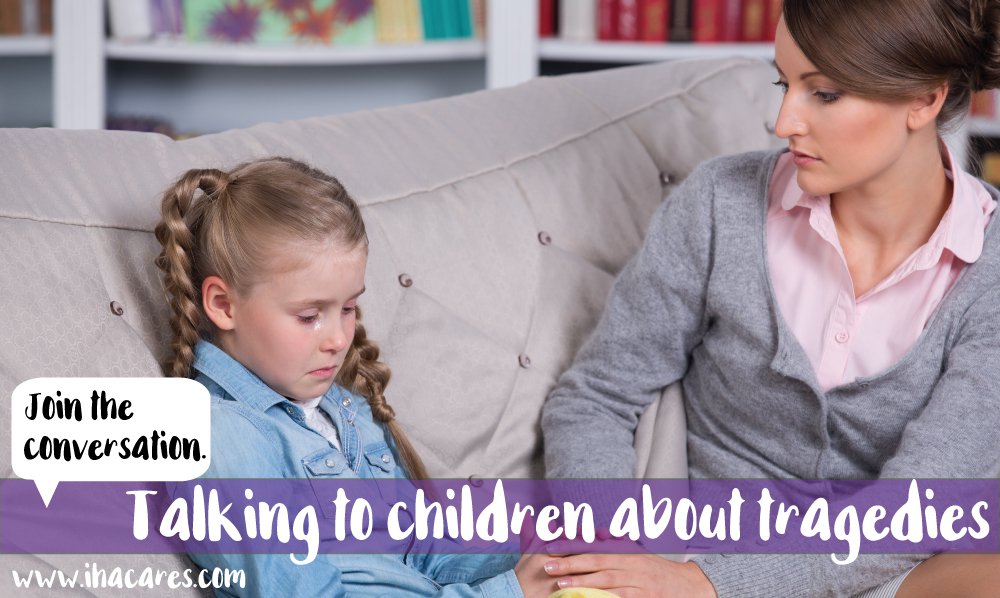
After a horrific event like a mass shooting or terrorist attack, parents find themselves trying to make sense of the event, all while trying to figure out what, if anything, they tell their children. Each child has unique needs in a crisis. Often, it will depend on their age, if they knew anyone affected by the crisis and how much they have been exposed to the news. Allow your child to give you clues about how to meet their needs, and remember that all children are different. One may ask you many, many questions, whereas another may only want extra hugs and to watch a movie. Both of these reactions are OK!
Ask your child what they’ve heard. Allow them to tell you what, if anything, they heard. Once they’ve told you, ask them if they have any questions. Keep your answers straightforward and direct. In general, it is best to share basic information, no graphic or unnecessary details. It’s important to understand that they’re asking you questions because they need someone they trust to listen to their questions, accept their feelings and be there to support them while they work through their emotions. Staying silent on the issue won’t protect them from these events, as much as we’d prefer for them to not have to hear about what’s happened.
While it may be possible to limit your child’s exposure to media within your home, it is difficult when you’re not within your own home, or if your child is older and has access to a cell phone, social media or news accounts.
Even your youngest child will hear about tragic events, and it’s better for them to hear information from a parent or caregiver than another child or general media. Additionally, younger children may respond with forms of dependence, like acting clingy, refusing to sleep alone and experiencing separation anxiety. They may also throw temper tantrums or wet the bed. An older child may respond with anxiety, sadness, risky behavior or outbursts at school.
Feelings of sadness, fear and confusion are normal reactions. However, if your child seems very upset and unable to recover from fear, starts having trouble in school or home, or isn’t able to get up and go to school, you may want to contact your child’s doctor for additional advice. Additionally, if you are concerned they need more information or support than you’re able to provide, you can reach out to their teacher, school counselors or doctor for additional support.
